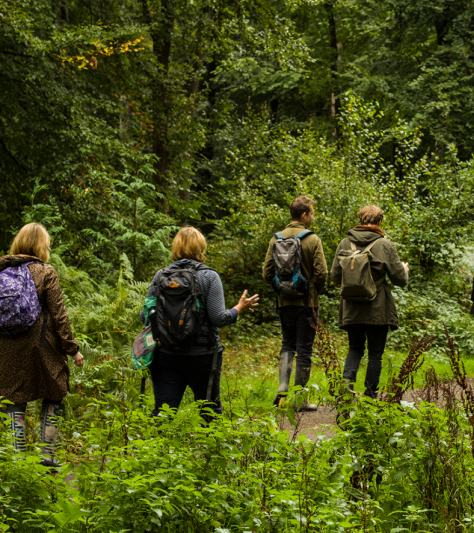Full Cycle 2016
This project works with disadvantaged young people from nearby towns a chance to connect with local woodlands, meet other people, and develop new skills and personal confidence through an annual programme of management and restoration of ancient coppice woods.
Full Cycle Project
Site owned: Lake District National Park Authority (LDNPA)
Project commissioned: Rusland Valley and Fells Landscape Partnership (RVFLP) and Colton Parish Council
Delivered by: LDNPA, Campaign for National Parks with Woodmatters Project
Managed: Gareth Thomas (Woodmatters), Clare Dyson (Campaign for National Parks)
Silver Award: Excellence in Forestry 2016
Full Cycle is a hands-on project in the Lake District that gives disadvantaged young people from nearby towns a chance to connect with the local woodlands, meet other people, and develop new skills and personal confidence.
The “full cycle” of the project is 12 months, which coincides with an annual programme of management and restoration of ancient coppice woods located in the Rusland Valley. The project was initially commissioned as a one-off, 12month cycle by Rusland Valley and Fells Landscape Partnership and Colton Parish Council. It was led by the Campaign for National Parks in partnership with the Lake District National Park Authority and Woodmatters.
Management
The project is split into five main stages:
- A taster session gives volunteers a chance to meet other people, learn the basic skills for working in the woods and be introduced to the rudiments of the environmental and social benefits of woods. This session also introduces the remaining aspects of the project.
- A coupe of hazel is cut by the volunteers and sorted for various uses. The stumps are protected by the erection of deer-proof fencing, which introduces the concept of sustainability and the problems that working with nature can generate. Some of the product will go to a local bobbin mill(with a visit by the volunteers), some will be sold to coppice merchants, and a portion is reserved for charcoal production.
- Charcoal is produced in a barrel burn. The close links between landscape and industry are clearly explained, further reinforced by a visit to a traditional tannery.
- A primitive forge is constructed and fuelled using the charcoal created earlier. Knives and other tools are shaped, tempered and sharpened by the volunteers under the supervision of the project leaders.
- The young volunteers use their tools to create greenwood crafts with wood from the coppice.
Volunteers spend time camping in the woods, where they learn about campcraft, co-operation and getting on with others.
This element was expanded when some volunteers travelled to Exmoor National Park to get together with their contemporaries from other projects in other National Parks across the UK.
Finally, the young people planned and led a day of coppicing for adult volunteers, briefing them on safe tool use, woodland conservation and coppicing practice.
Challenges/Successes
From the outset, the aims of the project were so clear that all stakeholders, volunteers and leaders involved in the project were united in working in the same direction.
Gareth’s strong, simple concept made the project easy to sell to supportive agencies and to the young people who would take part.
Clare’s knowledge of the National Park and contacts with charities, including the Prince’s Trust and Impact Housing, were invaluable when it came to recruiting, retaining and supporting the volunteers.
The simplicity of the concept belies the hard work which had to be undertaken to deliver an amazing and fulfilling experience to the volunteers.
The judges for the Education and Learning Award were impressed with the originality of this project, the high level of partnership and collaboration involved and the outcomes for all the participants.
They noted: “The project demonstrated an approach that was both highly innovative and heartwarming. It also demonstrated the benefits of partnership working, with input from private and public sector organisations.”
It is a testament to the success of the Full Cycle Project that funding has now been secured for a further three rotations of participants, beginning in November 2016.
Feedback
When asked what they had got out of taking part in Full Cycle, participants reported:
- better mental and physical health
- growth in confidence and self-esteem
- greater employment opportunities
- experience, skills and training
- new friends and a greater ability to build relationships and connections
- greater connection to nature
Comments from Volunteers
“I learned about woods and respecting them. People skills and how to talk to people and have a laugh. It’s getting me out and about… After a day out, I feel happy because I have made new friends and feel less anxious.”
“I’ve got communication skills, meeting new people and getting out and about.”
“I’ve learned knowledge about charcoal, coppicing and stuff about the area, and met people.”
“[It’s been all about] getting on and actually doing stuff and trying new things.”
For further information, visit:

